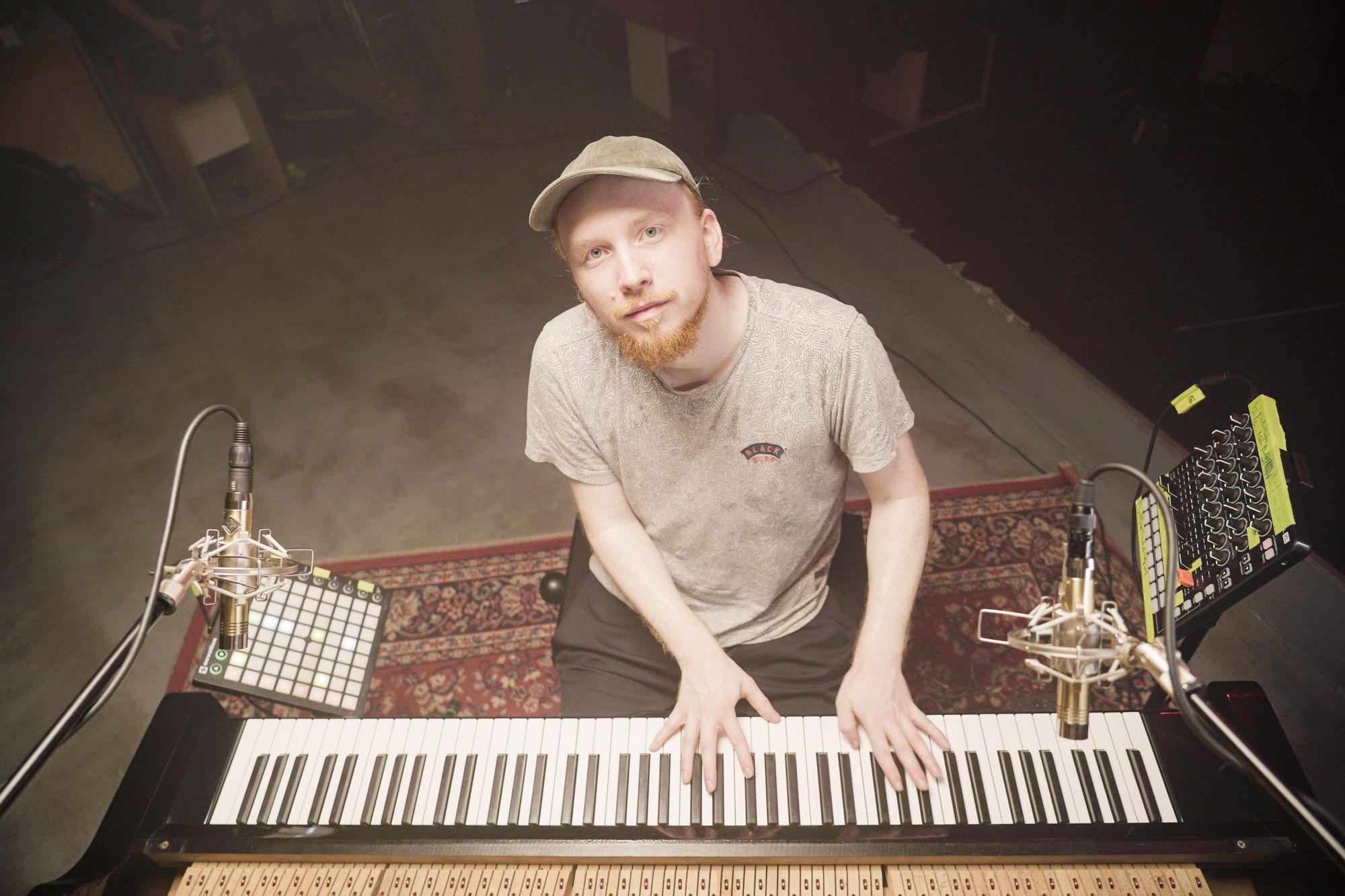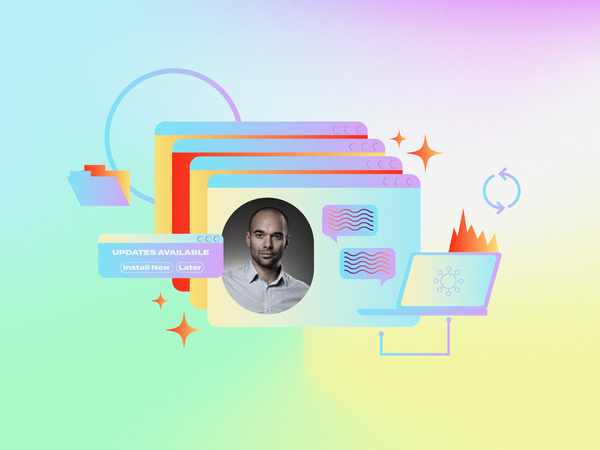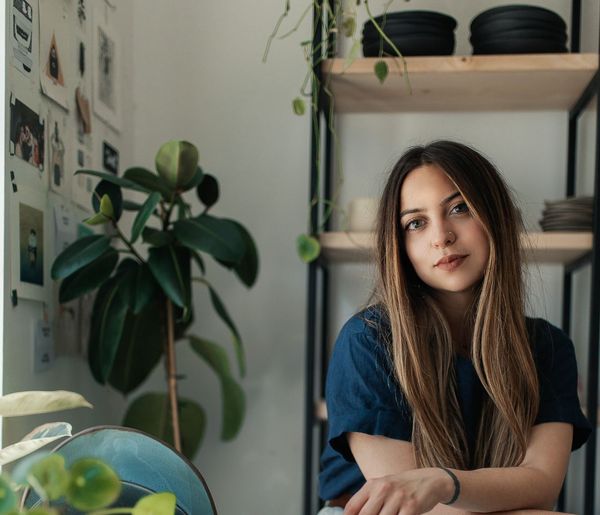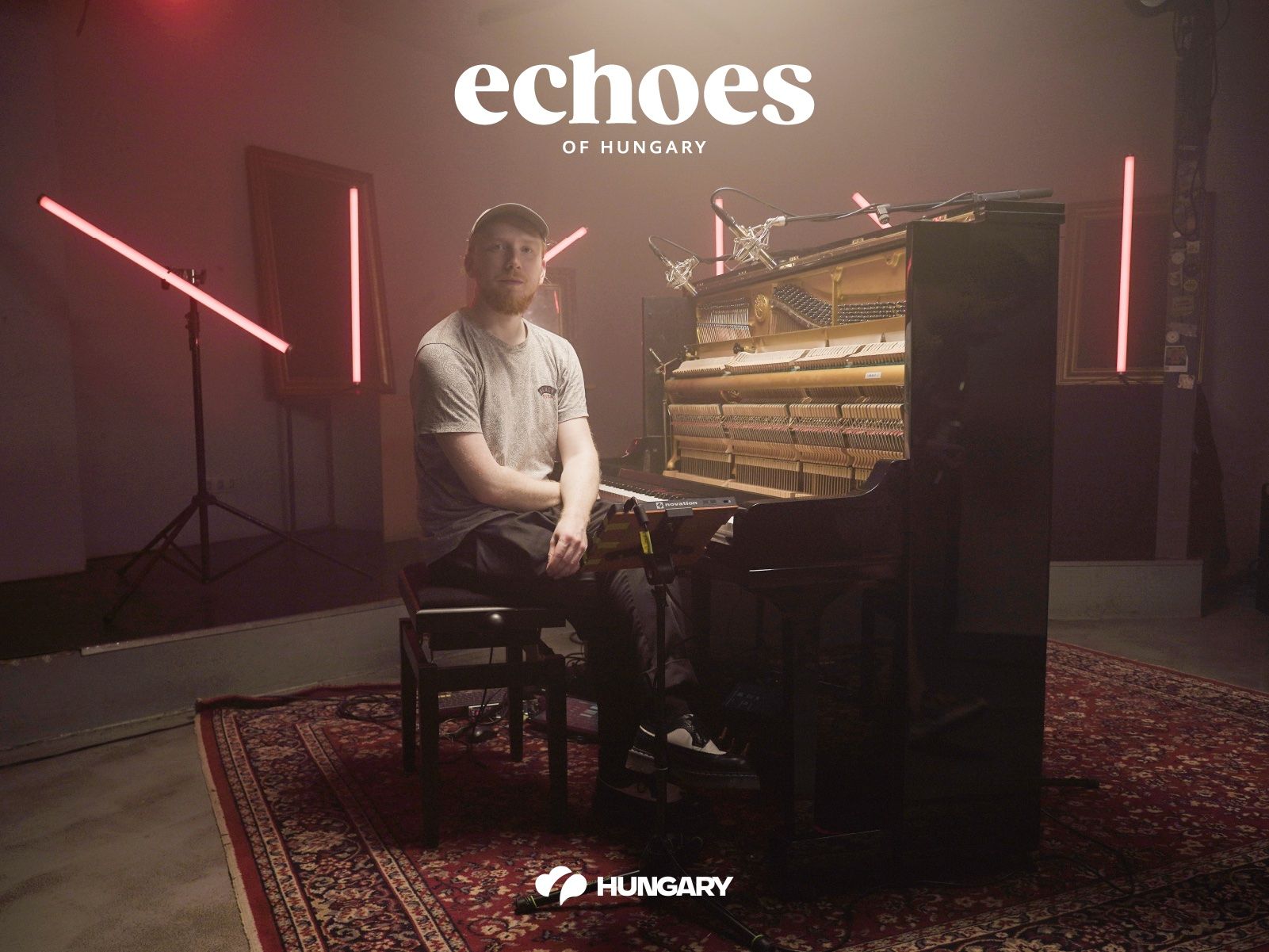The 28-year-old musician, who was born in Hamburg, is the master of atmosphere creation and the up-and-coming star and young titan of German music. Besides the classics, electronic music, Brian Eno and ambient all had an impact on his work. An artist with a special talent, who is not only modest, but also humble and curious.
You played your first Hungarian show of your career last autumn. What memories do you have of the concert? Did you have time to explore Budapest? Did you like the city?
The concert was very special, as it took place in a beautiful synagogue. It had a unique atmosphere, it was a completely new experience for me. That night, a trombone player, Lőrinc Barabás, joined me on stage, which was definitely the highlight of the show. We only had a little time the next morning to take a quick stroll in the city, but it was enough to walk down to the river, explore second-hand bookshops and eat good food. Budapest is a great city!
The concert took place at a unique location, the Dohány Street Synagogue. Do you like similar venues? What is the most unique location you have ever played at?
What I really like about being on a tour is that I can always discover new and unique places, ones that go beyond my previous experiences. It feels like I am constantly experiencing adventures. The last unusual place I performed was the Palazzo Vecchio in Florence. I played in the famous Sala dei Cinquecento hall, where the walls were fully covered in old paintings and gold. This autumn, I will play in Luxembourg, in a mine underground – I can’t wait.

You worked on your album, Svalbard, with Andy Barlow from the band Lamb. How did you find each other, what was the collaboration like?
My manager and I were looking for the right producer and listened to a lot of music in the meantime. That’s when we found Lamb and were very curious about the composer. He was Andy Barlow who has also produced others besides Lamb, for example U2. We met in his studio in Brighton and as soon as we started talking about the Svalbard demos, I got a good feeling. His first feedback was very inspiring, our work together was smooth all the way until the finalisation of the album. We had wonderful flow together.
You also compose music for movies. What is the biggest challenge in composing music for movies compared to writing your own songs?
The biggest difference is that a movie gives you reference points, such as the images and the storyline. These can be very useful, because you don’t have to start from scratch as opposed to when creating your own music. However, finding the right mood for the movie is a huge challenge. You really have to immerse yourself in the world and story of the movie, so that you start feeling it, and then you have to translate that feeling into the language of music.
Your most recent artist album came out two years ago. When can we expect the next one and what can you tell us about it, what direction are you taking?
I have recently finished the new album, it’ll be pressed on vinyl soon. I can tell you that it’ll contain three collaborations with singers and instrumentalists. In the past few years, I have been experimenting with various genres, and I feel like everything came together for this album. It is closer to the indie/alternative genre than to classical music. It will most likely be released in early 2023. I will share more info on it later on.
German electronic music is not only full of significant, genius artists, but it also keeps unearthing new talents. Who do you recommend from the latest up-and-coming performers whose names will become known worldwide in the coming years?
I would definitely recommend my old friend and colleague, Hannes Kretzer, who is currently working on an album. I was lucky enough to hear his material, and I absolutely love it. He has a very special, unique sound, and I am certain that we will be reading and hearing a lot about him in the future.

Experts always overestimate the risks - interview with Gábor Matuz

The COVID-19 boom was not undoubtedly positive for e-commerce – interview with Balázs Várkonyi










